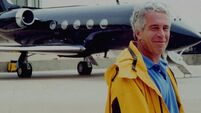EU bans imports of breeding chicks from US
The ban could result in a shortage of chicken and turkey meat in Europe as two major sources of supply Thailand and the US have now been shut down.
The ban was announced by Health and Consumer Affairs Commissioner David Byrne yesterday, who said it will be in place for at least a month.














